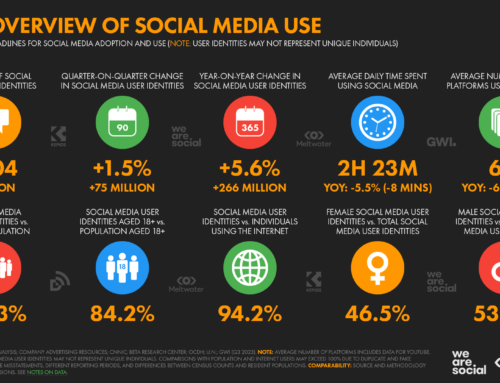Hashtags are a great way to organize your social media updates and to find others who are talking about the same things you are talking about. Hashtags are definitely here to stay, with Facebook recently adding the feature to their network, following Twitter and Instagram.
Here’s a little hashtag #background:
Adding a hashtag (#) before a keyword or phrase (no spaces between words in that phrase) turns that phrase into a link. Clicking on that link allows you to see everyone else who is using that hashtag.
Hashtags can be created by anyone. They can gain popularity organically based on current events or pop culture – #bieber, #boston, #grammys. Or they can be created to use for events like conferences or as part of a advocacy or marketing campaign – #NTC14, #FairTweets, #MakeItCount.
You can see why brands have an interest in creating hashtags. But you have probably heard about hashtag campaigns gone wrong like McDonald’s #McDStories and RIM’s #BeBold campaigns too, which backfired when those hashtags were taken over by people who thought less than nice things about those companies.
It’s probably these horror stories which prompt so many people to ask us:
“Can I register my hashtag?”
Our answer:
Yes, you can register your hashtag…
…but that probably doesn’t mean what you think it means.
Registering your hashtag will not stop others from using it. You can’t “own” a hashtag like you own your website’s domain name.
Registering a hashtag just stakes your claim to that hashtag and adds you to a hashtag directory, which in turn allows you to go into more detail as to what the hashtag is for.
Steps to registering your hashtag:
- Create your hashtag. It shouldn’t be too long if you are using it on Twitter, but it needs to be somewhat descriptive so people will have some idea what it means.
- Run a search on the social media networks you plan on using to see if the hashtag you want is already being used. We thought of a hashtag for a webinar we were going to live tweet, but a search of that phrase showed that Rihanna fans were already using it – not quite the same group of people we were trying to reach.
- Register your hashtag on sites like Twubs or Hashtags.org. We registered #cm4np through Twubs to use when talking about Kivi’s new book, Content Marketing for Nonprofits. Again, this doesn’t prevent someone else from using your hashtag for something entirely different, but it is another way to say, “Hey, world, we are using this hashtag.”
- Use it – a lot! A hashtag does no good, registered or not, if you aren’t using it for anything. In the beginning you will probably be the only one using it. That’s OK. You can still direct people to the hashtag as opposed to each individual post on that topic. Introduce the hashtag to your supporters in all of your communications and encourage them to use it when talking about that topic.
Do you use hashtags in your social media marketing? Have you registered one before?






